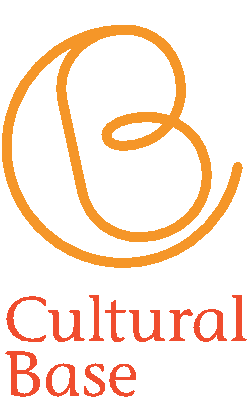Project facts
Presentation
Through a comprehensive perspective that includes the most relevant social and political connections, “CulturalBase. Social Platform on Cultural Heritage and European Identities” aims to address the topic of Heritage and European Identities from a double standpoint, namely, an analytical as well as a public policy perspective.
Since the second half of the last century, culture has experienced a profound mutation, through which its position and role in the social dynamics have been transformed. Whereas it was previously confined to a purely superstructural position, it now constitutes an essential basis of today’s society. In the context of cultural digitization and globalization the entire cultural ecosystem has changed, which has radically altered – and at the same time, intensified – the relationship between cultural identity, cultural heritage and cultural expression. This transformation has occurred both at the level of the professional cultural sector as well as in society as a whole.The new challenges and the new potential of culture, where three pillars – cultural identity, cultural heritage and cultural expression – intertwine, will be considered in the work of the CulturalBase along three axes:
- Cultural memory
- Cultural inclusion
- Cultural creativity
These are designed to research debates relating to heritage in the institutions and practices of cultural memory; how the focus on diversity and inclusion impacts on the practices of memory institutions, including on stakeholders and networks; what this reconfiguration contributes to new or post-national oriented narratives about identity and European values; and how heritage, cultural diversity and creativity relate in the context of huge cultural transformations such as the ones represented by digitization and cultural globalization.
Impacts & Results
CulturalBase ensures that collaboration proceeds efficiently so that researchers and stakeholders can focus their energy on achieving the objectives envisioned for the project:
- To make an extensive analysis of the research literatures and policy programmes in the general field of cultural heritage and European identities.
- To identify main research issues and policy programmes in this field and to contrast between the kind of research done and the policies developed.
- To produce general overviews on the research priorities and opportunities in relation with cultural heritage and European identities from three basic analytic perspectives: cultural memory, cultural inclusion and cultural creativity.
- To develop a shared view within the social platform on the more important and policy relevant research issues in this field for Europe in the coming years and the best way to address them.
- To produce strategic research agendas on cultural heritage and European identities from the three aforementioned analytic perspectives stemming from the shared views
- To produce general policy guidelines in this domain from these same perspectives, especially in relation with information systems and research policy.
In order to achieve the project’s objectives, a set of outputs has been identified.
The project outputs include the following:
a) Research:
- Synthetic review reports per axis
In December 2015 and as a result of the state of the art’s review, three review reports have been published on the website. Each review report analyses one of the three axis of the project (cultural memory, cultural inclusion and cultural creativity). - Synthetic vision documents per axis
These documents develop overviews on all the Thematic Areas (TAs) discussed from the perspective of each of the three articulating axes while identifying social challenges and opportunities linked also to each of them that are beyond the targeted TA. - Vision documents per thematic area
These documents are the result of a deeper review level focused on each one of the Thematic Areas of the project (see Theoretical framework). The main objective is to identify research gaps and build theoretical perspectives.
b) Meetings,
c) Comunication:
- CulturalBase website CulturalBase has set up a website as a repository of the information and activities related to the project. Information is also made available to all those interested in the themes tackled in the framework of CulturalBase through a dedicated Facebook page and a Twitter account. Intended as social platform, the CulturalBase website also includes an open online tool which serves the project enabling for the setting up of working groups, exchange of documents, etc. Information on the CulturalBase platform and how to access it will be systematically given through the website.
- CulturalBase news alerts : In order to provide updated information to all those participating in the CulturalBase project or interested in its activities, a series of 8 news alerts are published on the website throughout the duration of the project.
- CulturalBase policy briefs : CulturalBase aims at socializing the results of the activities carried out also through the provision of short and focused documents intended for the wider public. The policy briefs therefore summarize, in a concise and user-friendly style, the results of the different activities, including research and exchange of information.
- Data Management Plan
Regarding the dissemination of the data generated by CulturaBase (mainly through the theoretical review outcomes and research agenda development, discussion summaries resulting from workshops and stakeholders conference) a Project Data Management Plan was foreseen. The strategy for data management has been be considered as an open process conditioned by the data development and the participants’ interests in a broad sense. The web, is a key element to make the data accessible and to stimulate the participants and interested persons feedback.
“Markthal, Rotterdam” by F.d.W. is licensed under CC BY-NC-ND 2.0.

